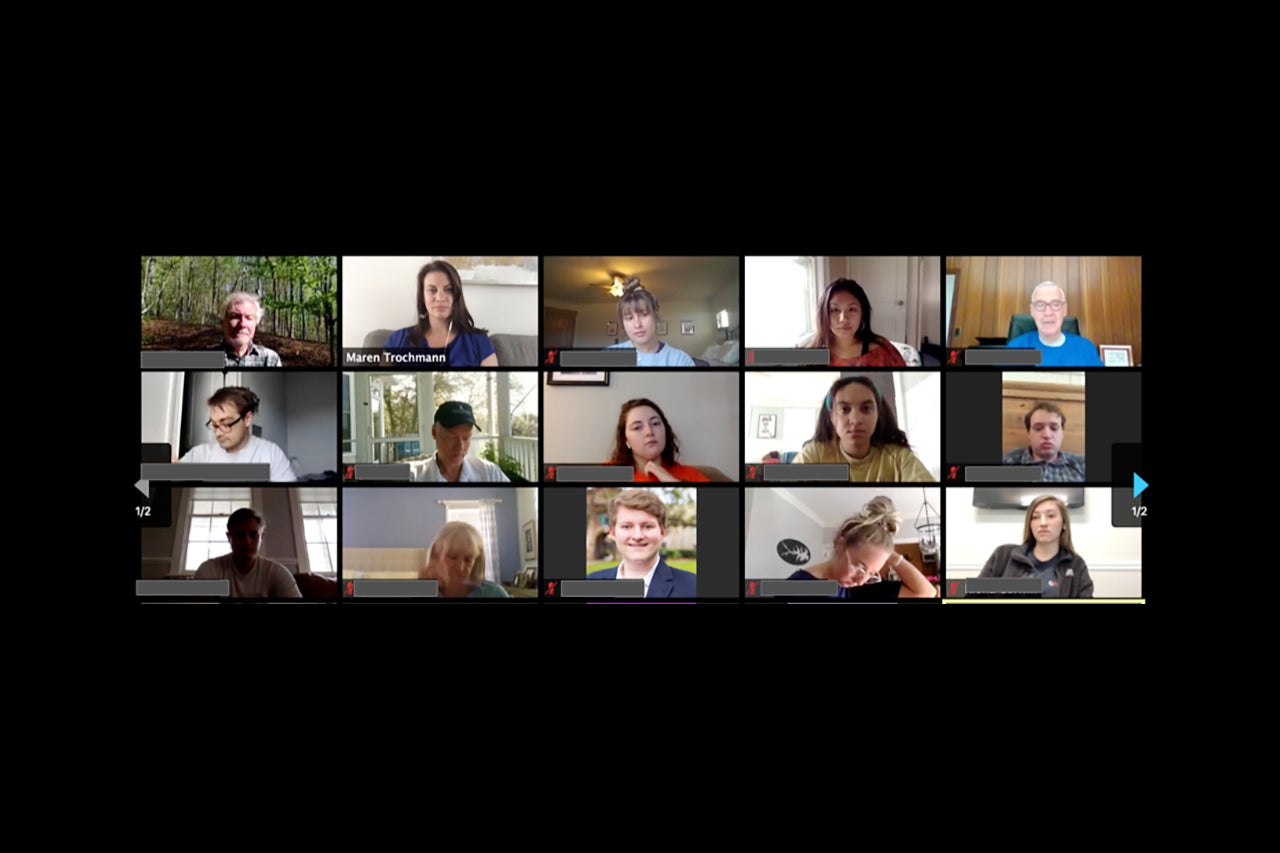A few months ago, College of Charleston professors were in the middle of planning lessons, putting the final touches on a syllabus and getting ready for another semester of school.
Then COVID-19 arrived and everything abruptly changed.
Alternate plans had to be made immediately. Educators had to make major pivots in the way they delivered their courses to students. Now, as the College concludes the spring semester after four weeks of e-learning, both students and professors are adapting to this new normal. In-person classes have been suspended through the summer, so all summer session courses will be online only.
“While this is a challenging and stressful time, I have really been amazed at how many people at CofC have stepped up to help, to share resources and materials, to provide advice and humor and to offer assistance,” says political science professor Maren Trochmann. “There was plenty of uncertainty and negativity during this time, but ironically, as we socially distance, I have also seen how we as a community have come together to support each other and try to put students and their wellbeing and education first.”
A recent survey by the College of Charleston Division of Information Technology showed that a majority of students rated their e-learning experience as good or superb.
Junior astrophysics major Nick Mancabelli says although he would rather meet in face-to-face classes, he is pleasantly surprised by how the Zoom classes have been working out.
“I think it helps with a lot of people who are too nervous to speak up a regular classroom setting,” Mancabelli says.
Business professor Mark Witte has taken to using both live Zoom classes and asynchronous e-learning tools such as recorded lectures and online assignments.
“Zoom is a fantastic tool,” Witte says. “We’ve underutilized technology for the purposes of meetings and for creating videos for our students.”
English professor Susan Farrell decided to make all of her classes asynchronous (recorded, self-paced formats) this semester. She says it provides needed flexibility for students.
“I think it’s difficult, with everyone’s crazy, mixed-up schedules right now to ask them to all log in at a certain time,” she says. “I have 20 or more students in each of my three classes, which seems to me too many to really have productive Zoom conversations.”
She also has students who are continuing their classes back home on the West Coast, making morning classes at a fixed time very difficult for them.
Delainey Henson, a senior majoring in English, has only one live lecture class via Zoom. She says that class has become one of the best parts of her week.
“I like being able to keep somewhat of a schedule since I am currently unable to work and there isn’t much to do,” she says, adding that although she likes Zoom more than she thought she would, she still misses the regular classroom setting. “I am definitely an in-person kind of gal.”
Without question, the last month has been a learning experience for both students and professors – one that will continue for the foreseeable future.
“Standard classes naturally create the give and take interactions between students and faculty,” says Witte. “Figuring out how to create that atmosphere in remote learning is another challenge to solve.”
Farrell says she is impressed with how kind and patient students, colleagues, College staff and administration has been during this time.
“Most everyone seems to be handling this situation with the best cheer they can muster up,” she says.
Featured image: Political science professor Maren Trochmann meets with students on Zoom.






